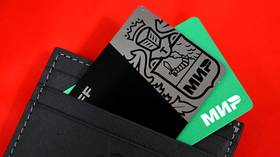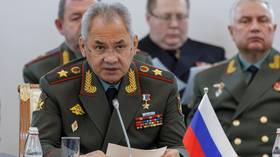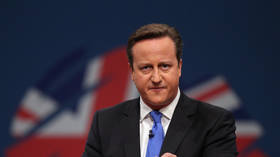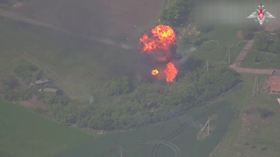Iran to accept Russian credit cards – Izvestia

Iran could start accepting Russian Mir debit and credit cards within the next few months, the trade attaché from Tehran’s embassy in Moscow told the Izvestia newspaper on Monday.
According to Mohsen Rahimi, work on preparing the necessary technical infrastructure is already underway, although implementing the system will take time. The move comes as Russia and Iran continue to build stronger economic ties, Rahimi stressed.
Moscow and Tehran have strengthened relations in the face of Western sanctions. Trade turnover between the two countries amounted to $4 billion last year and has potential for further growth, particularly in manufacturing, mechanical engineering, and transport, according to associate professor at the Financial University in Moscow, Mikhail Khachaturyan.
Testing of the Mir system, the Russian alternative to Visa and Mastercard, may start in Iran as early as the end of summer or the beginning of autumn, he told the outlet.
Moscow was hit by a wave of sanctions in 2022 in response to its military operation in Ukraine, including cutting many Russian banks off from SWIFT, Visa, and Mastercard. In response, the Russian government started promoting the domestic Mir system as a reliable alternative.
Iran’s economy has adapted despite being under sweeping international sanctions for decades, experts have noted, adding that Russia could use Tehran’s experience in resisting outside pressure.
The move to launch Mir in Iran is a logical forward step in developing bilateral cooperation after Tehran joined the BRICS economic group this year, said Tatiana Monaghan, secretary general of the International Chamber of Commerce (ICC).
Last year, the two countries announced at the KazanForum that they had completed all preliminary settlements for the use of Mir cards. Iran and Russia have also agreed to integrate the system with its Iranian analog, Shetab, to facilitate mutual transactions.
The decision to use Mir in Iran has grown in importance since a number of so-called ‘friendly’ countries, including Armenia, Kyrgyzstan, and Kazakhstan, placed restrictions on the system over fears of being targeted by secondary sanctions, experts say.
Mir cards are currently freely accepted in Abkhazia, Ossetia, and Belarus, and can be used with certain limits in Armenia, Kazakhstan, Kyrgyzstan, Tajikistan, Cuba, Venezuela, and Vietnam.













